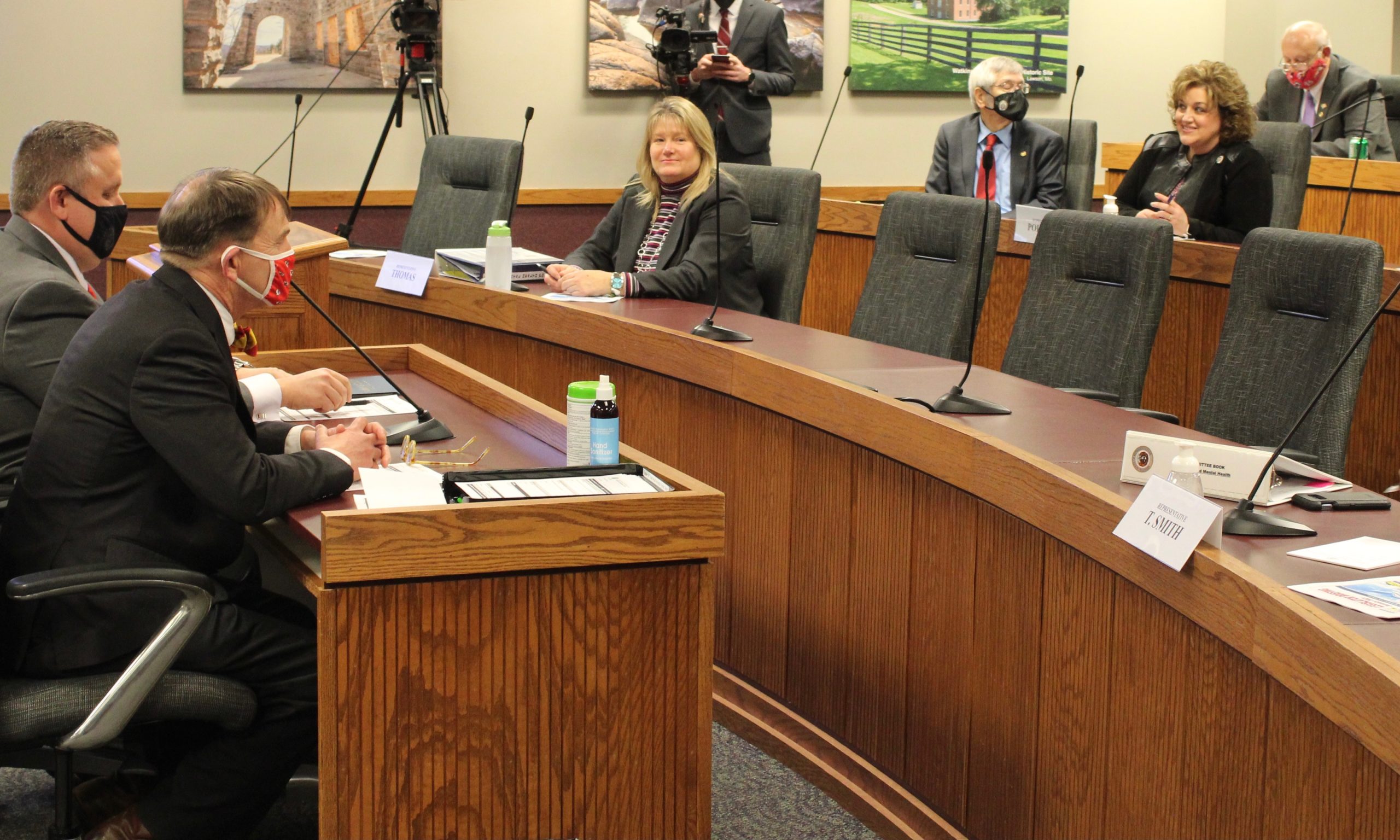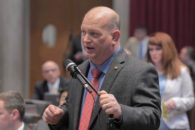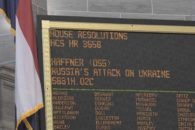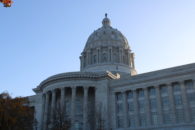JEFFERSON CITY, Mo. — As the vaccination effort continues to unfold across the state, Missouri’s administrative coronavirus response team is addressing the concerns of lawmakers and their constituents.
Dr. Randall Williams, director of the Department of Health and Senior Services (DHSS), told legislators the state’s first priority was vaccinating vulnerable populations.
“Our North Star when it comes to vaccination is our most vulnerable,” Williams said. “It is those people who, if they get COVID, are most likely to get sick or die. That drives everything we do; if you follow every decision we made, it goes back to that.”
Williams, DHSS Division of Community and Public Health Director Dr. Adam Crumbliss, and Gov. Mike Parson’s Deputy Chief of Staff Robert Knodell met with the House Committee on Health and Mental Health Policy Wednesday afternoon. The group fielded questions on vaccination rates, the equity of distribution, vaccination efforts in highly populated areas, and communication and accessibility with elderly and homeless Missourians — issues they pledged to address moving forward.
A focal point of the discussion was unused vaccines given to Walgreens and CVS, which had partnered with the federal government to vaccinate residents and employees of long-term care facilities. Parson said last week the state would begin collecting these doses for its own distribution.
Knodell said the White House had told the Governor’s Office that Walmart and Health Mart locations would begin receiving the vaccine Feb. 11 and would take a phased approach to focus on vulnerable communities. The supply is set to come from a separate federal allocation from what the state is already using.
Knodell also said the federal government would compensate Missouri for the deployment of its National Guard, which Parson mobilized to assist the vaccination effort across the state last month.
“The Biden administration last week informed us that they would be reimbursing the state of Missouri 100 percent for National Guard use continuing forward through the federal fiscal year, which is September,” he said. “This week, they informed Gov. Parson they would be retroactively reimbursing the 25 percent share we have been picking up for the National Guard for the last several months.”
Crumbliss noted that the vaccination effort was an ever-evolving process that is far from finished.
“This is going to be a very long process,” Crumbliss said. “To vaccinate the numbers of Missourians that we need to vaccinate, we have additional tiers, additional phases that are going to be opened up and vaccinators that are making preparations to do so that have not been shipped vaccines are going to have that opportunity as we get closer to [vaccinating] the general population.”
Williams said he welcomed the committee’s comments and would consider its feedback moving forward.
“I practiced medicine for 30 years and I always told people the first thing you do when you walk in a room is hear the chief complaint — I can’t help people unless I know what’s wrong,” Williams said. “If there are things that aren’t going well, whatever they may be, I want to hear about them because that’s the only way to fix them. That’s the spirit in which we are here; you all have valid points and valid questions… and we welcome that.”
Missouri is currently the second tier of Phase 1B of its vaccination plan, which began last month. The latest tier opened the vaccine to high-risk individuals including Missourians over the age of 65 and those with preexisting conditions. Individuals with cancer, COPD, developmental disabilities, weakened immune systems, and heart conditions are among those included in the latest group. Williams said it hoped to see the third tier, which will include educators and critical infrastructure workers, at some point in the spring.
Missouri’s congressional delegates called on the Federal Emergency Management Agency (FEMA) for help distributing the COVID-19 vaccine to rural and underserved communities last week.
553,095 Missourians — 7 percent of the population — have received the vaccine as of Wednesday evening, while nearly 126,000 have received both doses.

Cameron Gerber studied journalism at Lincoln University. Prior to Lincoln, he earned an associate’s degree from State Fair Community College. Cameron is a native of Eldon, Missouri.
Contact Cameron at cameron@themissouritimes.com.







































